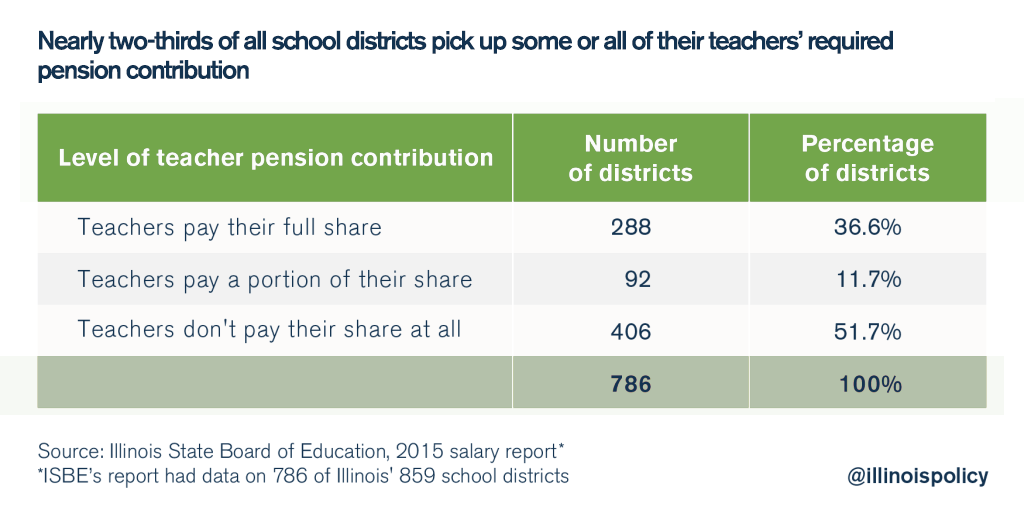Teacher pension pickups cost taxpayers $380 million per year
Nearly two-thirds of all school districts – and by extension, taxpayers – pick up some or all of each teacher’s required contribution.
School districts across Illinois might be eager for more state funding in any budget deal. But taxpayers should know these subsidies encourage bad practices, such as pension pickups – which cost taxpayers approximately $380 million per year.
Under state law, teachers are obligated to pay 9.4 percent of their salary into the state retirement system. But for decades, school districts have “picked up” all or part of that obligation, which state subsidies have encouraged. It’s a financially unsustainable practice, yet widespread throughout the state.
Nearly two-thirds of all school districts – and by extension, taxpayers – pick up some or all of each teacher’s required contribution. In Chicago, which has its own teachers’ pension fund, pension pickups cost taxpayers $134 million in fiscal year 2015.

Pension pickups are just one part of the burden teachers’ pensions impose on taxpayers. Teachers’ Retirement System, or TRS, the pension system for teachers outside of Chicago Public Schools, has admitted it can’t meet the lofty investment return targets it previously had set for itself, leaving taxpayers with the tab for the shortfall. TRS’s investment return failures combined with pension pickups mean taxpayers are getting hit by pension costs on three sides. First, taxpayers pay the state’s employer pension contribution through income taxes. Second, many pick up their teachers’ required contributions through local property taxes. And finally, taxpayers have been solely responsible for bailing out the billions in pension fund failures.
Illinois lawmakers should end pension pickups. Asking teachers to pay their fair share – a simple standard across both public and private industries – would save taxpayers hundreds of millions of dollars per year. The Senate’s budget proposal fails to address this or any similar reform, and dramatically increases the burden on Illinois taxpayers.